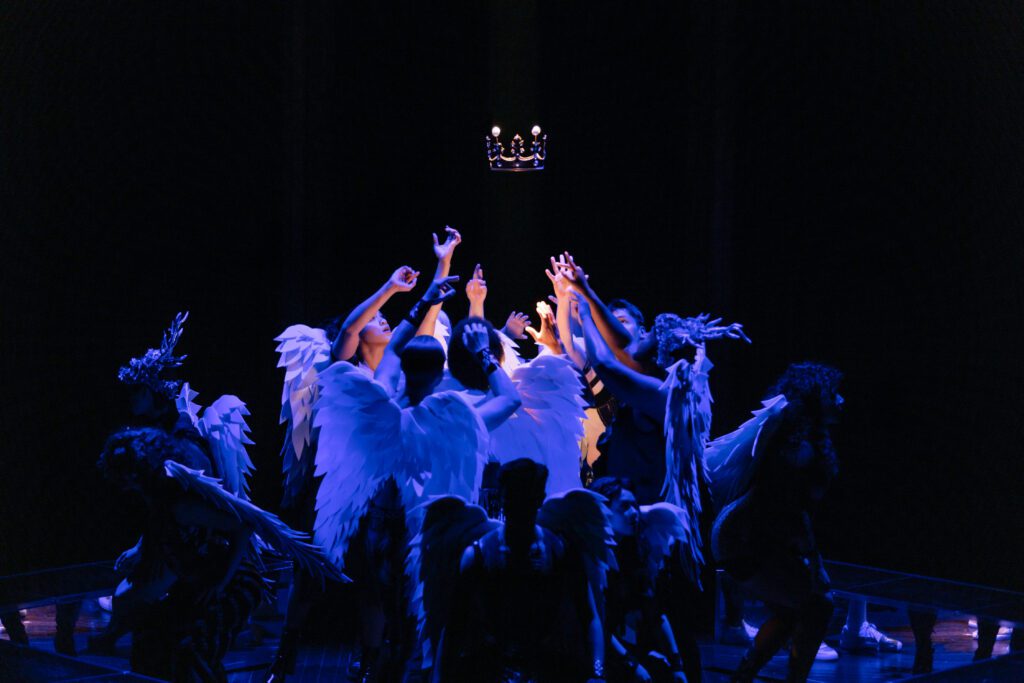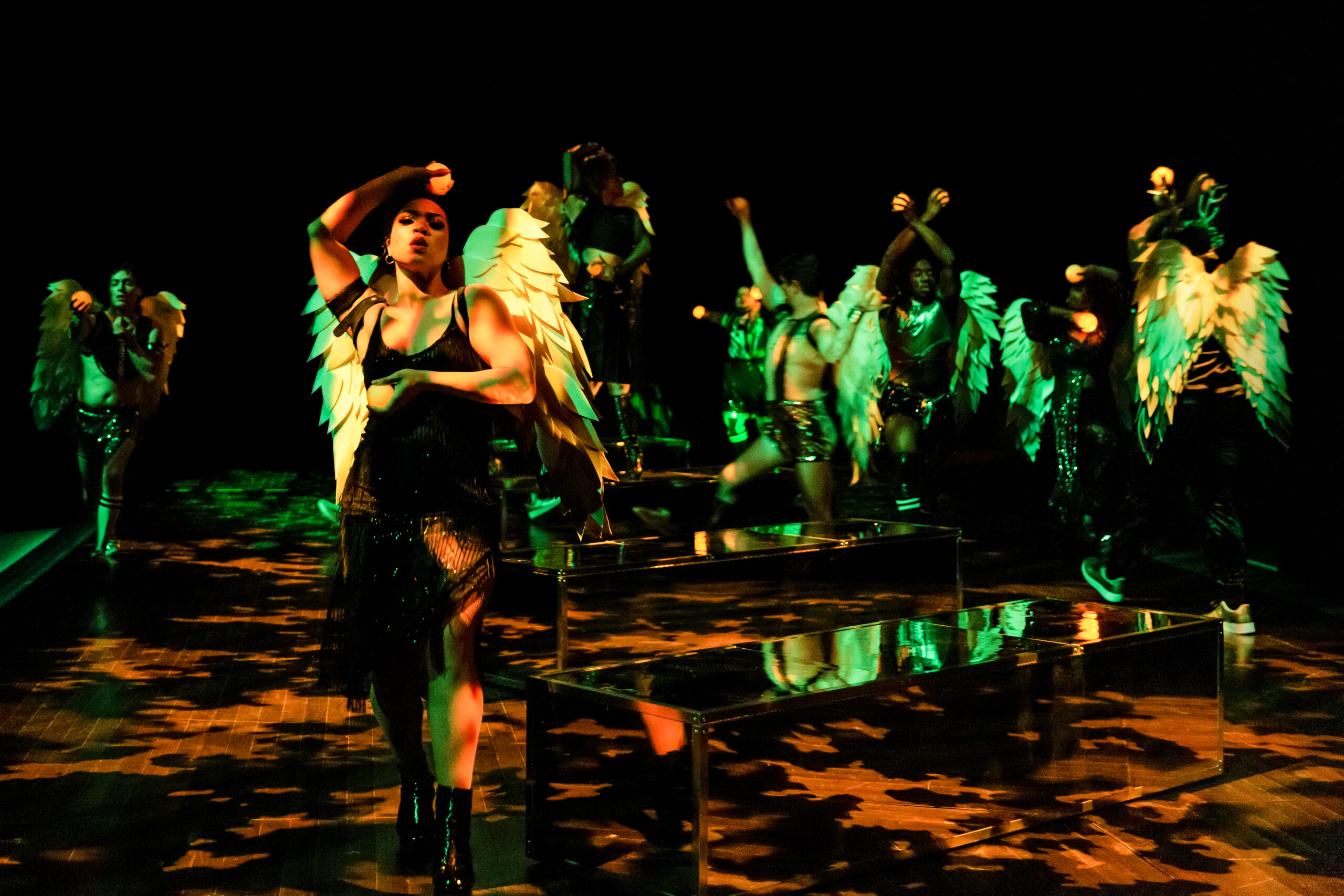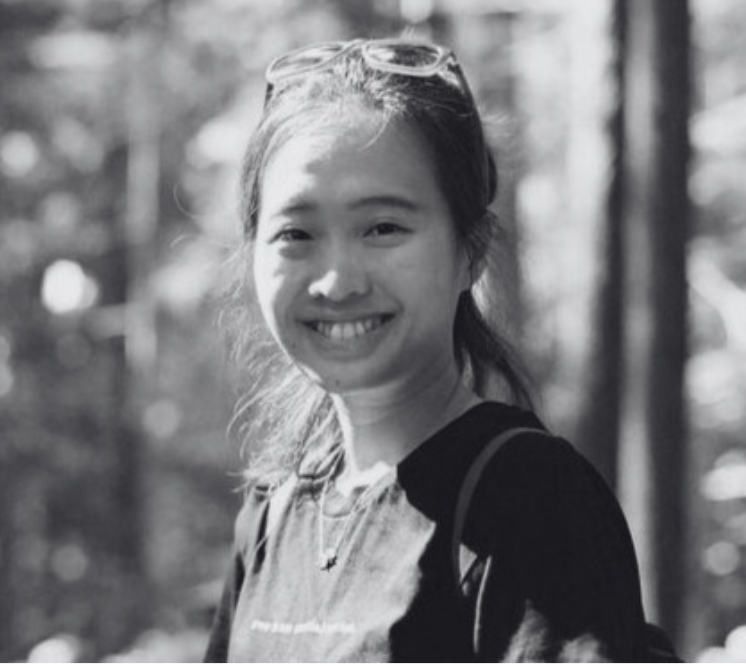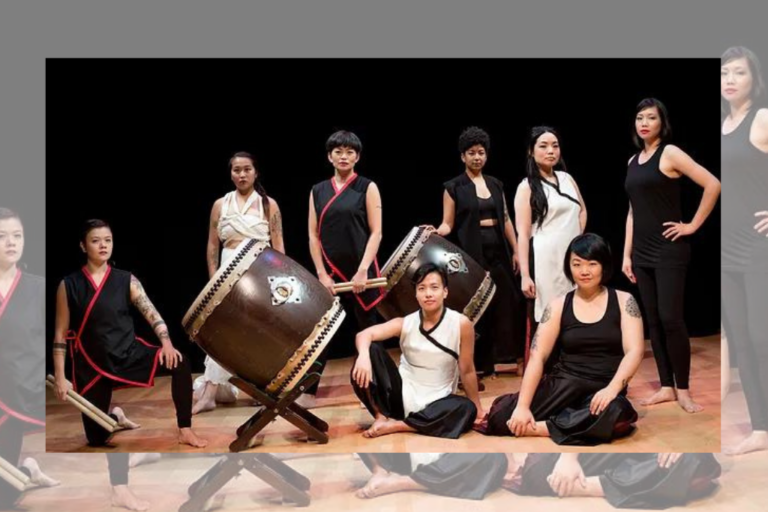Telling stories without speaking: Meet the angels of Stratford’s Richard II
“The whole story is about the angels.” – Jillian Keiley
I expected Richard II at the Stratford Festival would be revolutionary, knowing that it was Brad Fraser’s modern, subversive reimagining of Shakespeare as the tragic life of a Black, queer king in the disco era.
But I’d never have imagined it would become a story about an Angel Army.
Consisting of 15 performers, the Angel Army is not simply a chorus, nor an acting running crew facilitating smooth transitions between scenes. They represent power, holding the key to the rise and downfall of the king in the play. Instead of representing God, which is the association many might make with angels, they remind audiences of the ugliness of human nature, how the misuse of power has the capacity to determine, influence, and potentially destroy another life.
Hoping to learn more about the behind-the-scenes of this radical Army, I chatted with three of the actors playing the Angels — Alex Wierzbicki, Olivia Sinclair-Brisbane, and Travae Williams, who all made their debut this season at the Stratford Festival, as well as director Jillian Keiley and choreographer Cameron Carver (who is also new to the festival).
The idea of creating the Angel Army grew out of Keiley’s encounter with an image of the Wilton Diptych, which was commissioned by (the real) King Richard in the 14th century. “Brad did not write about the angels,” Keiley said, “but I think he likes them.”
Inspired by the Diptych’s portrayal of a group of blue angels backing the King as “God’s mouthpiece on Earth” (as Keiley said in a program note), she and the rest of the creative team gathered in the summer of 2022 to explore how to contextualize this image against the backdrop of the post-Stonewall disco-era in the 1970s and 80s.
“There’s this really famous picture that Bretta (Gerecke, the costume designer) brought into the room,” Carver said, “and it was the boys [partying] at Studio 54. They’re all wearing these little angel wings and booty shorts, and instinctually, that really started to resonate with us.” This image set the tone of the angels in this production, representing less divinity, holiness, and purity, and more what Carver called “gremlin-like” little devils — naughty, playful and sexy, yearning for power and chaos.

When asked about the role the Angel Army plays in the production, all five interviewees were quite in sync with their answers: they are the narrators of the story. The goal was that the Angels would communicate the way power functions in the production without speaking any lines, rather through intricate movements and choreography.
“Jill had a real instinct that the language of the play is dance,” Carver noted. “The movement that we utilized and choreographed always had to do with story. It always came back to how we can use the choreography to deepen our experience of the story.”
This notion of using choreography as narrative is articulated right from the beginning, as the Angels set the glamourous, queer, and free-spirited scene through disco dancing moves. During this opening dance, they lift Richard up in the air, displaying their strength in empowering the King. Later on, they communicate the shifting power dynamics between Richard and Bolingbroke by moving the crown from one hand to another in Carver’s thoughtful choreography. The transition of the 15 angels turning their back on Richard and moving towards Bolingbroke flows beautifully, engaging viewers not only with the first image of a pathetic Richard, but also with the fickleness of power without a single spoken line.
While the Angel Army always performs together as a single entity, one shouldn’t ignore their diverse individuality. Each of the Angels perform not only in their own unique costumes designed by Gerecke, but also with distinctive identities that the performers have imagined.
“My angel is a little bit of a radical and she likes chaos, which is why I think Stephen (Jackman-Torkoff, who plays Richard) named her Euphoria,” said Sinclair-Brisbane. She loves the cheeky moments where her Angel interacts with Richard, including once-off encounters that come out of the spontaneity of performance. She recalled such an encounter in a performance just before our interview, during the scene of John of Gaunt’s death. “Stephen was giving a speech and speaking about how he was going to take things away from Gaunt. I smiled at them with a very evil grin, and they smiled back and it was very fun.”
Unlike Sinclair-Brisbane, Wierzbicki and Williams named their Angels themselves, drawing on their own identities. “The name that I gave my Angel was actually before we even started doing the runs,” Wierzbicki said. “Because I have some Polynesian heritage, the name that I gave my Angel is Mikalo. It means full of surprises.” Williams also incorporated part of himself through the naming of his Angel. “My angel’s name is Sparkle Williams, because my last name is Williams and I always have glitter, and sometimes I choose days where I just put extra glitter on […] my Angel loves to shine.”
The identities of the Angels are not only about the performers’ different personalities, but also a representation of race. Nearly all the actors playing the Angels come from the IBPOC communities, and rather than revisiting the traumas and difficult memories that are often experienced by such communities, the Angels offer another way of telling their stories: a way that is energetic, fun, and loving.
“I want to give that imagery to people of colour that [they] actually do belong on this stage and that our stories are just as worth telling,” Wierzbicki said. The production represents “people of colour just feeling themselves, and just living their best life.”
These representations, however, involve considerable physical and emotional labour. I asked Wierzbicki, Sinclair-Brisbane, and Williams about the challenges they’ve encountered. Physically, the Angels appear in almost every scene (probably more than the King!), with vigorous dances and movement of props. Emotionally, they need to internalize the feelings of audiences that are not entirely on board with the provocative performances, including hard partying choreography and intense queer sex scenes.
This work is important not only because it lets diversity be seen and celebrated by other diverse people, but also because it gives people who might not share those beliefs the opportunity to see why it’s so important. It’s a chance to make a change.
“With our first preview, you could feel the audience was on board and they were having a good time with the fight, the duel,” Wierzbicki said, “and once we started to get into the hot tub scene, you could feel that there was a shift of energy in the room.” He’s referring to an extended scene involving intimacy between Jackman-Torkoff’s Richard and Emilio Vieira’s Aumerle. “Some people were loving it,” continued Wierzbicki, “but then you could tell that for a few that were just not their cup of tea…and the unfortunate truth is that at intermission we had maybe a whole row of people leaving.”
When asked about how they maneuver through these scenarios where the audience may not be entirely receptive, Williams replied, “I always say a prayer before I go on [stage]…I just feel like I can’t do it on my own considering the amount of discrimination I’ve experienced in my life.”
In the end, the Angels and the whole production team all persevered with one strong belief: “this work is important not only because it lets diversity be seen and celebrated by other diverse people,” said Sinclair-Brisbane, “but also it gives people who might not share those beliefs the opportunity to see why it’s so important,” she added. “It’s a chance to make change.”
For Carver, this is not about “presenting a story to meet other expectations…It is about shaking things up. It is about bringing in some ideas that may completely shift somebody’s perspective,” he said. “We’ve created this piece of theatre that has a really highly energized polarizing effect, and my opinion is that we’re doing our job.”
One of the statements that stuck in my mind after these interviews was Williams saying, ”I deserve to be seen and heard in my fullness.” For a play like Richard II (as the title suggests), the title character often stands in the spotlight. I wanted to throw that light on the Angel Army and the creatives behind this production, who all deserve to be seen and heard. They’ve contributed parts of themselves, navigated different emotional rides, and carried this disruptive, complex version of Richard II to audiences.
The whole story is about the Angels.
Richard II closes at the Stratford Festival on September 28. You can learn more about the production here.










Comments